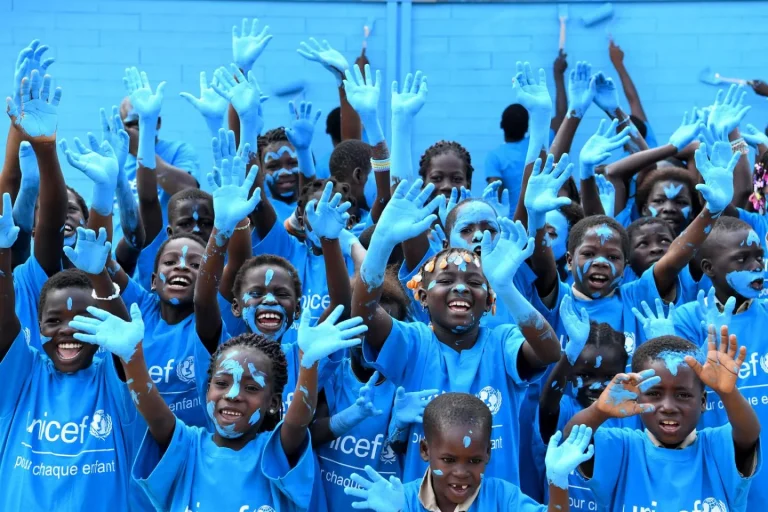Nigerian children have urged the government and stakeholders to prioritize their safety, education, nutrition and overall well being, stressing that their future is essential to national progress and development.
They made the call on Thursday in Abuja during the 2025 World Children’s Day commemoration, themed: “The Future of Nigeria’s Children: Voices, Vision, and Action.” The event highlighted children’s rights, safety and empowerment across the country.
The children emphasized that they remain Nigeria’s greatest resource and the foundation for future growth, innovation and stability. They warned that no society could thrive when its children are unsafe, malnourished or denied access to quality education—conditions fundamental to every child’s development.
Speaking on child protection, Precious Orasakwe of Government Secondary School, Bwari, said insecurity continued to endanger children, noting that more than 1,600 schoolchildren had been kidnapped by armed groups since 2014.
“These abductions disrupt schooling, expose children to trauma and create fear that limits attendance,” she said.
She added that Boko Haram had exploited displaced children for recruitment, while widespread insecurity across northern Nigeria continued to undermine education and childhood safety.
“More than 1,000 schools have been destroyed in the North-East since 2014,” she noted, recalling Monday’s attack on Federal Government College, Birnin Yauri, where students and teachers were abducted and a teacher killed.
Orasakwe called for targeted global sanctions against perpetrators of abductions and trafficking, while stressing the need to strengthen safe-school initiatives, legal frameworks and national campaigns to protect children from violence and harmful practices.
Speaking on health and nutrition, Samson Ayobami of GSS Kubwa said nutrition must remain central to sustainable development. He urged Nigeria to expand community nutrition programmes and provide therapeutic foods and micronutrients to tackle malnutrition nationwide.
He recommended scaling up school feeding programmes, improving school-based nutrition initiatives and adopting digital platforms for real-time monitoring.
“Together, we can build a future where every child is nourished, healthy and full of hope—free from barriers like malnutrition,” he said.
A pupil from Festival Road Primary School said education remained critical to preparing children with skills and values needed for success, insisting that learning was a pathway to development and opportunity.
He noted that more than 10.2 million Nigerian children were out of school—the highest number globally—with the problem most severe in the North-West and North-East.
“Only 38 per cent of children attend preschool, 51 per cent of adolescents transition to upper secondary on time, and just 38 per cent of rural children complete basic education milestones,” he said.
He added that dropout rates peak at 27 per cent in senior secondary, while one in seven youths aged 15–24 are neither in school, work nor training.
He urged the government to increase the education budget and ensure its effective use, stressing the need for quality teaching, 21st-century learning tools and a curriculum that promotes critical thinking, creativity and problem-solving.
UN Resident Coordinator, Dr. Mohammed Fall, said World Children’s Day reaffirmed the principles of the Convention on the Rights of the Child—ensuring dignity, protection and opportunity for every Nigerian child.
Launching The Nigerian Child 2025 Report, Fall said two out of three Nigerian children live in multidimensional poverty, lacking nutrition, healthcare, safety and protection.
He added that more than half of Nigerian children experience violence, while one in three girls marries before age 18.
However, he noted progress: under-five mortality has dropped by more than 40 per cent since 1990; exclusive breastfeeding has risen from two per cent to 29 per cent; vaccination coverage has tripled; and millions of children have returned to school.
Minister of Budget and National Planning, Sen. Atiku Bagudu, said investment in children was the most important foundation for sustainable national development. He stressed that protecting children and improving education must be a shared responsibility.
He said collaboration was essential to addressing insecurity and noted that the Safe School Initiative remained underfunded, adding that seeking external support for child protection should not be viewed as weakness.
World Children’s Day is commemorated globally on Nov. 20 to promote children’s rights and welfare, and to reflect on efforts to ensure that all children grow up safe, educated and protected.


